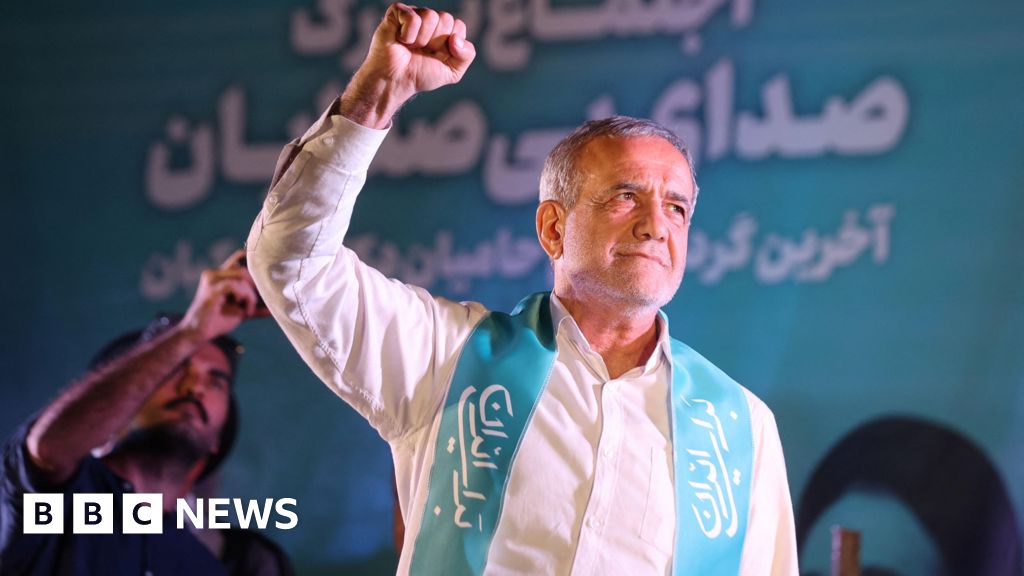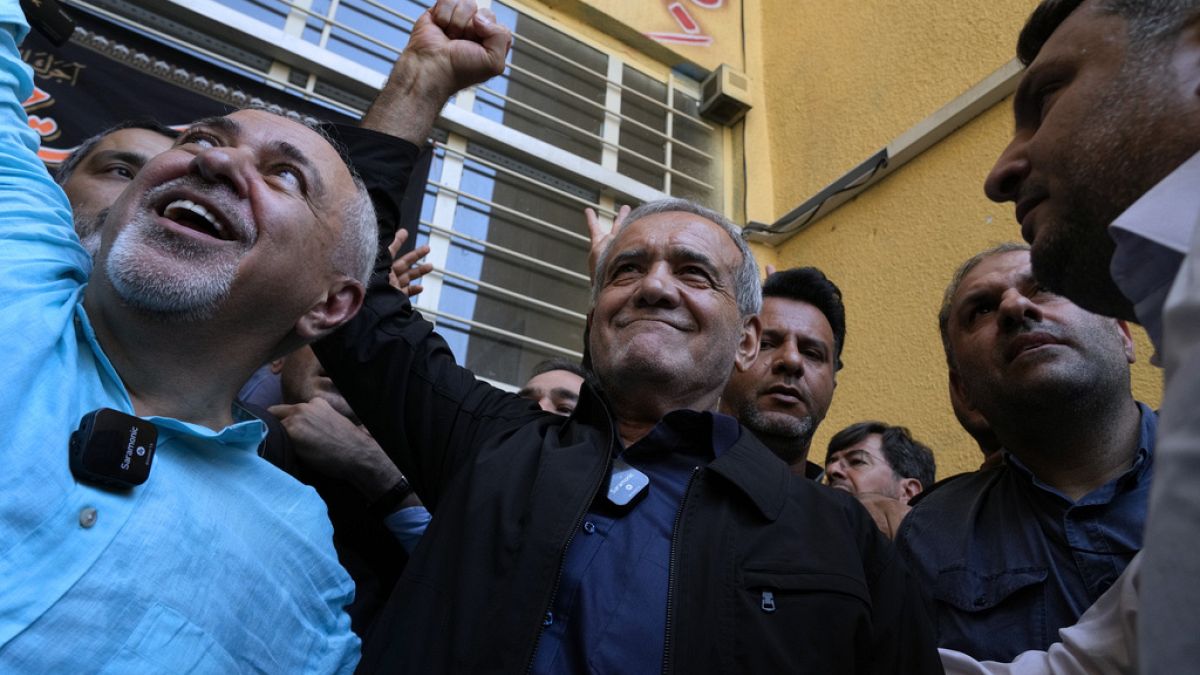Masoud Pezeshkian, a candidate backed by reformists won the Iranian presidential run-off with 53.7% of the vote translating to 16.3 million votes. His main opponent Saeed Jalili received 13.5 million votes.

Also Read: UK Election Results: Labour’s Keir Starmer Becomes Prime Minister
Masoud Pezeshkian won in the runoff with 53.6% of the vote defeating ultraconservative Saeed Jalili who gained 44.3%.
The turnout was reported at 49.8%, an increase from the record low of 39% in the first round of voting. Masoud Pezeshkian received 16,384,403 votes while Jalili obtained 13,538,179 votes.
Masoud Pezeshkian’s victory is the only reformist allowed to run, during a political environment where many reformist candidates were barred.
His campaign was by calls for unity, social freedom and dialogue with adversaries especially concerning Iran’s nuclear program.
The first round of voting had the lowest turnout since the 1979 Islamic Revolution.
Masoud Pezeshkian served as a health minister under the reformist President Mohammad Khatami. He has been vocal against the use of force in implementing religious laws and criticized the government’s handling of the 2009 and 2022 protests.
He supports moderate reforms including easing restrictions on internet access and women’s dress codes.
Ayatollah Khamenei congratulated Masoud Pezeshkian but urged him to continue the path set by the late President Ebrahim Raisi.
The election results are pending certification by the Guardian Council before Pezeshkian can officially take office.
Masoud Pezeshkian faces challenges including economy problems, social unrest and increasing international isolation.
Leaders from Russia, Saudi Arabia and Pakistan extended their congratulations. The US State Department acknowledged Pezeshkian’s win but expressed doubts about changes in Iran’s policy or human rights practices.
He has promised to address economic challenges and social issues advocating for the release of political prisoners and greater social freedoms.
Masoud Pezeshkian plans to pursue dialogue with Western countries to alleviate sanctions and improve economic conditions.
While he may seek to soften Iran’s international stance, Pezeshkian has also affirmed loyalty to the Supreme Leader’s foreign policy directives.
Masoud Pezeshkian’s mixed background (Azeri and Kurdish) resonates with Iran’s population but has also attracted xenophobic criticism. After losing his wife and child in a car accident, Pezeshkian dedicated himself to public service.
Masoud Pezeshkian’s victory makes him Iran’s ninth president. The president-elect is expected to assume his duties within 30 days with formal endorsement and swearing-in ceremonies pending.
The run-off saw a voter turnout of 49.8%, an increase from the record low of 39.92% in the first round. More than half of the 61 million eligible voters abstained from voting.
Supreme Leader Ayatollah Ali Khamenei praised the election as a defeat of boycott efforts led by Iran’s “enemies”.
Leaders from regional and allied countries congratulated Masoud Pezeshkian signaling a positive reception. Western leaders have not yet issued statements of congratulations.
Iran’s currency and stock markets reacted positively to the election results.
Also Read: China Seizes Taiwanese Fishing Boat for Fishing Illegally
The current parliament was by conservatives and hardliners and may pose challenges to Masoud Pezeshkian’s administration.
The former Foreign Minister Mohammad Javad Zarif, a key Pezeshkian ally has faced opposition from hardline factions.
The president-elect is expected to face hurdles in securing parliamentary approval for his cabinet particularly with reformist figures.
Former economy minister Ali Tayebnia who had previously reduced inflation is anticipated to play a key role in the new administration.
Belarus President Alexander Lukashenko invited Pezeshkian to Minsk expressing optimism for a partnership between Belarus and Iran.
Tajikistan President Emomali Rahmon extended an invitation for an official visit.
South Korea government congratulated Pezeshkian expressing hopes for improved bilateral relations during ongoing sanctions.
Serbia President Aleksandar Vucic also sent congratulations.
Leaders from Saudi Arabia, Qatar, Oman, Kuwait, and Iraq congratulated Pezeshkian. Iraqi President Abdul Latif Jamal Rashid addressed the importance of building relationship between Iraq and Iran.
Masoud Pezeshkian, a member of parliament representing Tabriz will need to resign from his parliamentary position.
This is scheduled for a vote on July 21. Formal endorsement and swearing-in will follow parliamentary ratification.
Khamenei described the election as “free and transparent” and rebuffed any notion that non-voters opposed the establishment.
There was confusion about the timing of Pezeshkian’s post-election news conference.
Pakistan Prime Minister Shehbaz Sharif and President Asif Ali Zardari addressed the importance of a cooperative future.
India Prime Minister Narendra Modi looked forward to strengthening bilateral ties with Iran.
Masoud Pezeshkian’s inauguration is expected by August 5 with the parliament ready to expedite the process if necessary.
Crown Prince Mohammed bin Salman expressed a desire to develop deeper ties between Saudi Arabia and Iran.
Also Read: Mohamed Ould Ghazouani Wins Re-Election in Mauritania with Over 56% of the Vote




















